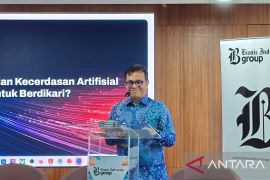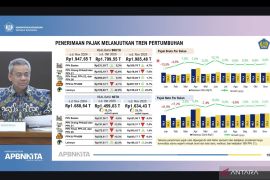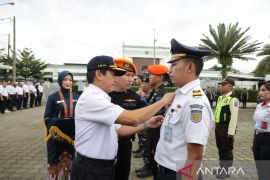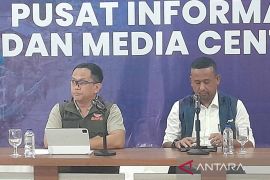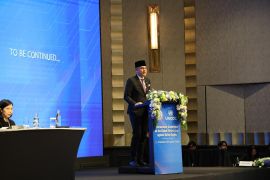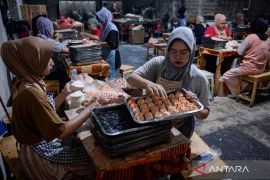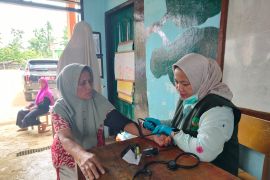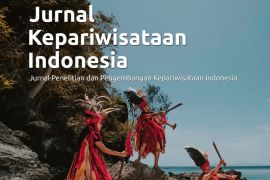"Many anti-graft agencies across the world have not been able to meet public expectations because they have failed to investigate and prosecute people with strong political positions. In fact, these anti-graft agencies often face counterattacks," MaJakarta (ANTARA News) - House Speaker Marzuki Alie has stated that an anti-corruption agency cannot be expected to eradicate corruption in the country without the cooperation of other parties.
"An anti-corruption agency cannot stand alone in doing its duty just because it has to define its existence and independence. Besides, the agency certainly needs some assistance in combating corruption," he said at the opening of an international conference, entitled "Principles for Anti-Corruption Agencies", here on Monday.
According to Alie, a nation`s executive and legislative agencies need to help the anti-graft body eradicate corruption.
"Many anti-graft agencies across the world have not been able to meet public expectations because they have failed to investigate and prosecute people with strong political positions. In fact, these anti-graft agencies often face counterattacks," he noted.
Alie expressed hope that the Corruption Eradication Commission (KPK) would never hesitate to independently interrogate state officials suspected of corruption.
"We hope KPK leaders never hesitate to stand up as an independent agency to combat corruption. If the KPK is not sure about its independence as an anti-graft agency, there is no use of it being there," he said, adding that the House of Representatives was not against the KPK.
On the same occasion, KPK Chairman Abraham Samad stated that the anti-corruption agency should be given sufficient independence to be able to function effectively, without any intervention that can impede law enforcement.
"Some anti-corruption agencies across the world have carried out their duties successfully, while others have failed. However, a recent study proved that the success of anti-corruption agencies depends on several factors, such as independence, the government`s seriousness in enforcing the law, sufficient budget and resources, as well as absence of intervention," he noted.
"On the other hand, failure is inevitable when the ruling regime does not have enough political will to tackle corruption," Samad continued.
"According to the data released by Transparency International Agency, Indonesia scores 3 in the Corruption Perceptions Index (CPI) - on a scale of 1 to 10, where the score of 1 means the country has a very high level of corruption, while the score of 10 is given to a country that is deemed free from corruption," he explained.
"In 2007, Indonesia`s CPI score was 2.3, which means there has been a decrease in corruption, but not significantly so," Samad pointed out.
The international conference in Jakarta has been organized by the KPK in cooperation with the United Nations Development Program (UNDP) and the United Nations Office on Drugs and Crime (UNODC). Held on November 26-27, the event is being attended by 38 anti-graft agencies.(*)
Editor: Heru Purwanto
Copyright © ANTARA 2012

